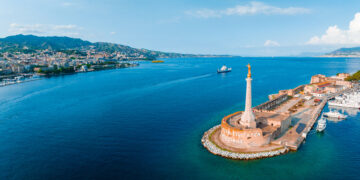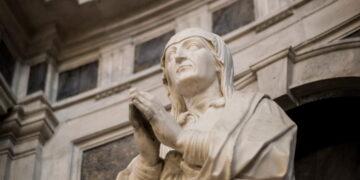Contents
Questo articolo è disponibile anche in:
March 2024 is a month full of celebrations. Last Sunday, March 10, the Islamic holy month of Ramadan began; we are rapidly approaching Catholic Easter, scheduled for Sunday 31st. There is still time for Orthodox Easter: this year it is scheduled for May 5th. However, one further celebration can be added to the list: Ostara, pagan Easter.
Part of the eight “segments” of the Wheel of the Year, Ostara exalts rebirth, the return of life: not surprisingly, it coincides with the Spring Equinox. Although it has its roots in Germanic culture, this celebration shares many elements with Mediterranean civilizations, especially with the ancient cults of the Greeks and Romans.
It is therefore necessary to take a leap back in time, to discover a festivity which, even today, contains and shares numerous parallels with the celebrations of other religions, some of which are quite famous.
Ostara, Eostre, Hestia, Vesta: a spring with many names
The spring celebration of Ostara derives from the name of the Germanic deity Eostre, linked to rebirth, life, fertility, whose name was initially used to describe the celebration of the spring equinox. We are not certain of the etymology of the goddess’ name: however, the presence of “aus” or “aes” in the term leads back to “East”, the direction from which the dawn can be seen, symbol of a new beginning.
Parallels between this divinity and those worshiped in the ancient Mediterranean cults can already be found in Greek tradition: according to some studies, Eostre corresponds to Hestia, firstborn of Cronus and Rhea, worshiped as protector of the home and hearth.
From Greece to ancient Rome: the figure of Hestia corresponds to that of Vesta; in all three cases, the celebrations of Hestia, Vesta and Ostara are united by the lighting of a fire once the celebrations have begun. Even today, in different parts of the world huge bonfires are lit to celebrate the return of light, a custom that was born pagan and over time adopted by various religions, from Christianity to Orthodoxy.

Also in ancient Greece, the return of spring and life was celebrated with the Adonies, created to remember the return from Hades of the one whom Aphrodite, goddess of love, loved deeply. According to legend, the young man was killed by a boar which, depending on the versions, may have been sent out of jealousy by Ares, Apollo or Artemis: Aphrodite’s pain shocked Zeus, who allowed Adonis to spend 4 months on the land of the living , 4 where he desired, and 4 in Hades, a time associated with winter.
From Ostara to Christian Easter
All these holidays linked to life and rebirth, with the expansion of Christianity, have been incorporated and transformed into a holiday arriving in the next few days: Easter. Studies in this regard were conducted by the German philosopher and linguist Jacob Ludwig Karl Grimm, older brother of the well-known literary duo, co-author of Children’s and Household Tales: he tells us how
We Germans still call April ostermonat […]. The great Christian festival, which usually falls in April or at the end of March, anciently bears the name ôstarâ. It is to have denoted, in pagan religion, a superior being, whose cult was so firmly established that the Christian teachers tolerated the name and applied it to one of their greatest festivals.
From Ostara to Easter, the English name for Catholic Easter, celebrated throughout the world. However, although this ancient and ever-changing celebration has been incorporated into Christianity, there still remain today, even in religious tradition, “pagan” elements that can be grasped by looking around now more than ever in this period, during which the holiday is approaching.
According to ancient legends, the animal representing the divinity was none other than the hare: a tradition which, although adopted to a lesser extent even in Mediterranean multiculturalism, is widespread in America and England.
The hares, according to the stories, brought eggs: elements that have always represented life and regeneration: elements closely linked to these holidays. Unlike the hare, the Easter egg has also become more popular in Mediterranean countries: supermarkets, in this period, are full of them, to the delight of adults and children.
Ostara, therefore, demonstrates once again how the Mediterranean, cradle of multiple civilizations, has also welcomed traditions apparently distant from it, incorporating them, transforming them, and updating them, so that, even today, they are more alive than ever in the elements that distinguish them.














